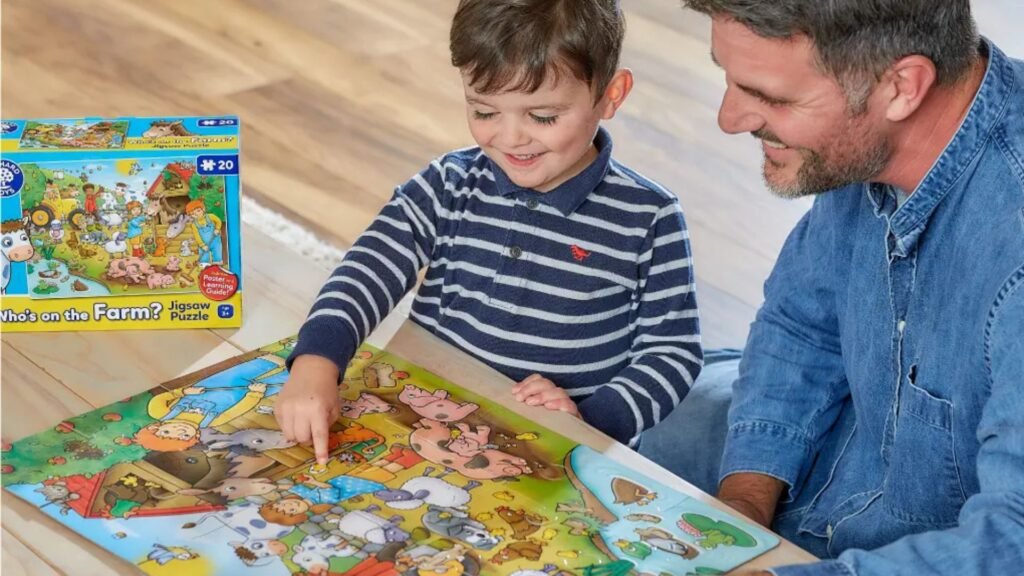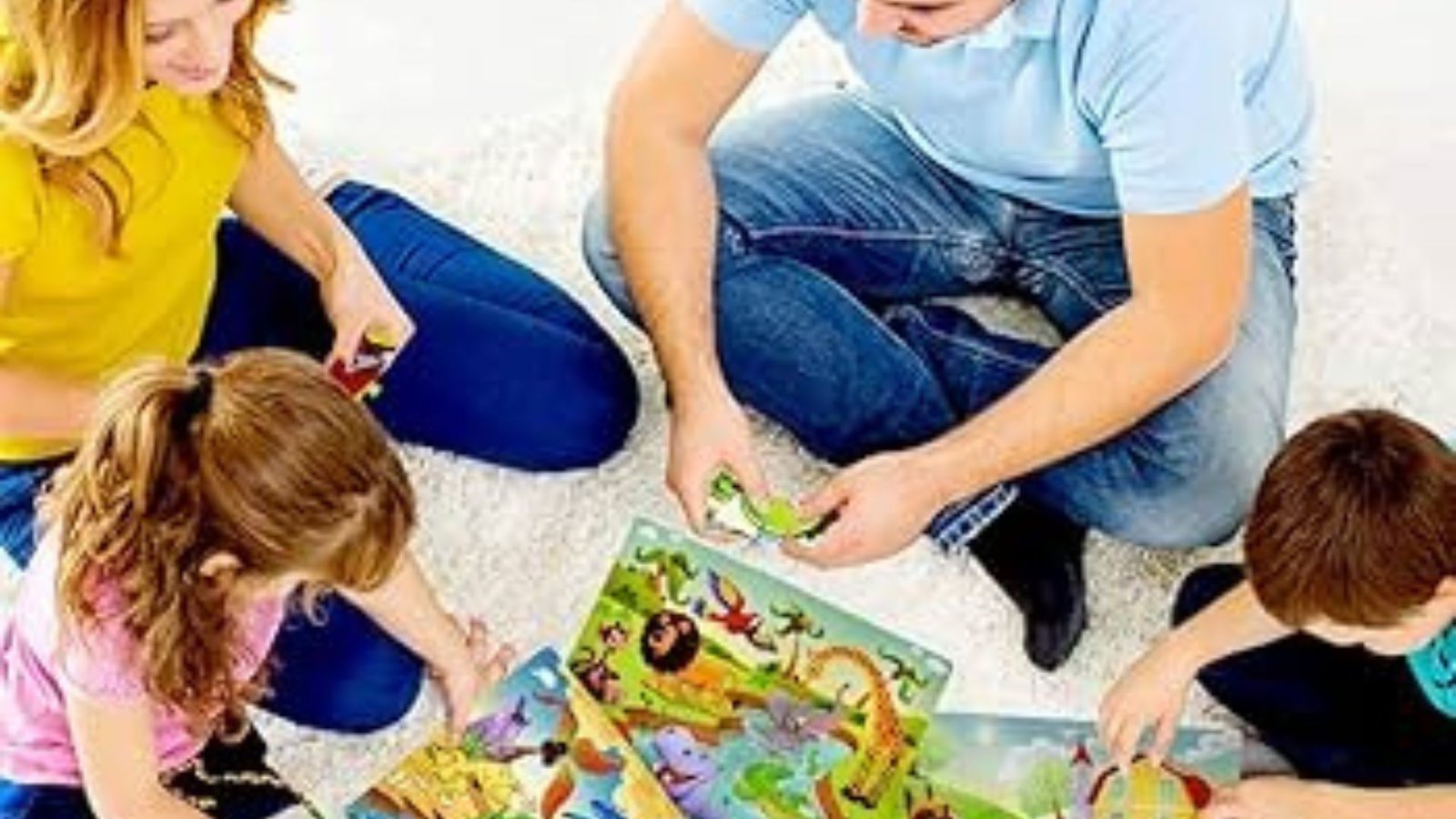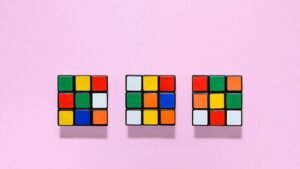Puzzles are not just fun—they are also an excellent tool for teaching children important skills. Educational puzzles for kids and young learners help develop critical thinking, improve problem-solving abilities, and enhance creativity. With the right puzzles, learning becomes enjoyable and effective. In this article, we will explore some of the best educational puzzles that can benefit kids and young learners.

1. Jigsaw Puzzles for Developing Cognitive Skills
Jigsaw puzzles are one of the most popular types of educational puzzles for kids. They come in various themes, such as animals, nature, and maps. As children work to piece together the puzzle, they practice important cognitive skills such as pattern recognition, memory, and concentration. The more complex the puzzle, the more it challenges the child’s brain.
Why Jigsaw Puzzles Are Beneficial:
- Boosts problem-solving skills: Kids learn how to think critically and figure out how pieces fit together.
- Improves concentration: Completing a jigsaw puzzle requires focus, helping children develop better attention spans.
- Strengthens spatial reasoning: Kids understand how shapes and objects relate to one another in space.
2. Alphabet and Number Puzzles to Improve Early Literacy and Math Skills
Alphabet and number puzzles are excellent for young children who are just starting to learn their letters and numbers. These puzzles come in various formats, such as matching games, sorting, or putting letters and numbers in order. By solving these puzzles, children improve their reading, writing, and math skills in a fun and interactive way.
Why Alphabet and Number Puzzles Are Great:
- Enhances literacy: Kids get familiar with the alphabet and learn to recognize letters and their sounds.
- Improves math skills: Number puzzles help children understand numbers and basic math concepts, such as counting and addition.
- Encourages hand-eye coordination: Puzzles help kids practice fine motor skills by fitting pieces together.
3. Shape and Color Sorting Puzzles for Early Learning
Shape and color-sorting puzzles are perfect for toddlers and young learners. These puzzles help children learn to recognize different shapes, colors, and sizes, which are essential for early development. Children can match shapes to their corresponding outlines or group items by color. These types of puzzles support early learning of basic concepts enjoyably and engagingly.
Why Shape and Color Sorting Puzzles Are Beneficial:
- Supports cognitive development: Children learn to distinguish between various shapes and colors.
- Promotes critical thinking: Sorting and categorizing help kids develop their logical thinking skills.
- Enhances motor skills: These puzzles help kids improve their fine motor skills as they place pieces in the correct spaces.
4. Geography Puzzles to Teach About the World
Geography puzzles are a fun and interactive way to introduce kids to the world around them. Puzzles featuring maps, countries, continents, and oceans allow children to learn about geography while developing their puzzle-solving abilities. These puzzles are especially useful for helping children understand spatial relationships and locations.
Why Geography Puzzles Are Great for Kids:
- Improves knowledge of geography: Children learn about countries, states, and continents while solving the puzzle.
- Promotes world awareness: Geography puzzles give children a basic understanding of where they are in the world.
- Develop critical thinking: Kids use logic and problem-solving skills to place pieces correctly on the map.
5. STEM Puzzles for Encouraging Problem-Solving
STEM puzzles (Science, Technology, Engineering, and Mathematics) are designed to engage kids in educational activities that promote a love for learning. These puzzles can include building kits, logic games, or even simple engineering projects. They are perfect for encouraging problem-solving and critical thinking, and they often come with instructions to help kids understand key STEM concepts.
Why STEM Puzzles Are Beneficial:
- Develops logical thinking: STEM puzzles encourage children to think logically and make connections between different concepts.
- Enhances creativity: Many STEM puzzles involve creating something from scratch, fostering creativity and innovation.
- Strengthens teamwork: Some STEM puzzles are designed for group play, promoting cooperation and teamwork among children.
6. Memory and Matching Puzzles to Enhance Memory Skills
Memory puzzles, also known as matching games, are excellent for young learners. These puzzles involve matching pairs of cards or pieces with identical images or patterns. By playing these games, kids improve their memory skills and develop better focus and concentration.
Why Memory and Matching Puzzles Are Helpful:
- Improves memory retention: Kids practice recalling the location of matching pieces, which helps boost memory.
- Enhances concentration: These puzzles require focus and attention to detail.
- Teaches patience: Completing matching puzzles teaches children the value of patience as they search for the right matches.
7. Puzzle Games for Emotional and Social Learning
In addition to cognitive development, puzzle games also help children understand emotions and develop social skills. There are many puzzles designed to teach kids about feelings, relationships, and social situations. These puzzles can include activities like matching emotions to faces, solving scenarios, or playing games that teach empathy and cooperation.
Why Emotional and Social Puzzles Are Valuable:
- Promotes emotional intelligence: Children learn to recognize and express emotions, improving their emotional awareness.
- Teaches social skills: Puzzles that involve social scenarios help children practice teamwork, sharing, and problem-solving in group settings.
- Builds empathy: By working through different social situations, children learn empathy and how to interact with others positively.
8. Logic and Brain Teasers for Older Kids
As kids get older, they can tackle more advanced educational puzzles like logic puzzles, riddles, and brain teasers. These types of puzzles challenge children to think critically, make inferences, and solve problems in creative ways. Logic puzzles come in many forms, such as number puzzles, word problems, and strategy games, and they are great for kids who enjoy a mental challenge.
Why Logic and Brain Teasers Are Great for Kids:
- Strengthens problem-solving skills: Kids learn how to break down complex problems and find solutions step by step.
- Enhances critical thinking: These puzzles encourage kids to think analytically and make reasoned decisions.
- Boosts creativity: Brain teasers stimulate creative thinking and help children develop new ways of approaching problems.
Conclusion
Educational puzzles are an excellent way for kids and young learners to develop important skills while having fun. From improving memory and concentration to teaching math and geography, puzzles are a powerful learning tool for children of all ages. Whether it’s through jigsaw puzzles, shape sorting games, or brain teasers, educational puzzles make learning engaging and enjoyable. By incorporating puzzles into your child’s daily routine, you can help them grow intellectually while also providing them with hours of entertainment.



